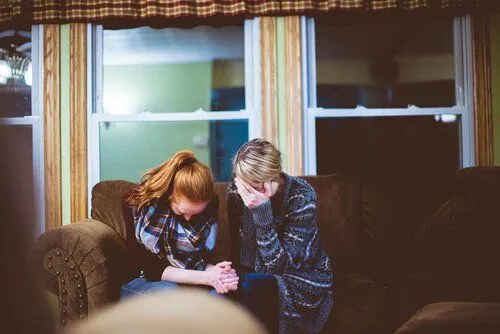Disclaimer: This blog provides general information only. If you need legal help, contact a lawyer or legal aid location.
Entering a courthouse can feel intimidating. Traditional court buildings are designed to appear imposing — from the heavy doors and high ceilings to the large, colonial decorations. In a similar way, the law itself can make individuals feel small and powerless. Canada has many laws in place to protect survivors from violence. However, the legal system falls short of guaranteeing every survivor’s rights to dignity, freedom, and personal security. Here, we review the legislation in place for survivors of abuse and gaps to be mindful of.
Getting to know the Criminal Code
It is empowering for survivors to be familiar with how criminal offences are prosecuted in Canada. Knowledge of this process can help survivors advocate for themselves, report potential crimes, and gather evidence to seek protection.
For example, did you know that stalking is defined by the Criminal Code as harassment that causes someone to reasonably fear for their safety? If a survivor is repeatedly watched, followed, spoken to, or threatened in a way that makes them feel afraid, it could be grounds for a criminal harassment charge.

This law defines stalking based on its consequences for the survivor. So, if what’s happening to a survivor would also scare their friend or their dentist in the same context, it’s a crime. That’s how the law on criminal harassment can protect survivors from various circumstances, from violent exes constantly showing up at their child’s school to receiving strings of text messages that feel scary and inappropriate after a bad date.
If you’re a survivor, here are steps you can take to navigate the law:
- Stay safe: take precautions when you can, create a safety plan, and seek support.
- Know your rights: research federal and provincial law relevant to your situation.
- Document the evidence: screenshot, save, and download data, record yourself and take pictures, and keep a logbook of relevant events.
- Seek legal counsel: contact a lawyer, or request affordable legal aid in your province.
A patchwork of provincial law
Although federal law is applied across Canada, the provinces and territories are responsible for most of its enforcement. They also pass their own laws relevant to survivors – and some are more thorough than others.
For instance, Ontario’s Domestic Violence Court is a unique program for handling domestic violence cases in the criminal justice system. The idea is to simplify the prosecution of domestic assault cases, provide more support to survivors, and increase offender responsibility. This court draws from the Ontario Domestic Violence Act, a set of criminal charges that helps protect survivors of violence in the home.
Provincial statutes complement protections in the Criminal Code. They offer further support to survivors, like emergency protection orders. These may deny the right for abusers to remain in the home or use the family vehicle. They may also restrain the abuser from contacting the survivor or members of their family. Laws related to spousal and child support might also be applicable in cases of abuse, and support arrangements are influenced by the impact of violence on family members. You can find a list of family violence legislation organized by province here.
Are you a “victim”? The authorities may refer to you as a “victim,” “complainant,” or “witness,” even if you don’t identify with any of these words. This is formal court language and it is not a judgment on your person. At Shelter Movers, we say “survivors” to emphasize you are more than what has happened to you.
Survivors v. Canada
The Canadian government promises there are policies in place to ensure gender-based violence, family violence, and intimate partner violence are treated as seriously as stranger violence. Sadly, survivors too often face indifference and poor treatment from the authorities. Gaps in law enforcement can cost survivors their lives – therefore, it is essential to support survivors as they advocate for their safety through the law.

Sometimes, abusers maintain power and control by misusing the legal system. This is called ‘litigation abuse’, and it can be experienced throughout the proceedings. The abuser can threaten to take the survivor’s children through custody, draw out or sabotage legal processes to make them more expensive, and even intimidate the survivor or their lawyer into withdrawing charges, among other things.
Barriers to Protection
While protection orders and peace bonds are available, there are variations in how well they are implemented across Canada. Moreover, survivors can encounter barriers in accessing legal representation, particularly if they cannot afford private lawyers. Some survivors face discrimination or job loss as a result of abuse, which isn’t always covered under employment protections. Finally, ensuring that the legal system is culturally competent and sensitive to the diverse needs of survivors is crucial. This includes recognizing and addressing the unique challenges faced by Black, Indigenous, immigrant, disabled, older and LGBTQ+ survivors.

In recent years, Canada has ramped up efforts to prevent gender-based violence and family violence. The federal Divorce Act and family law were updated in 2021 to include the term “coercive and controlling behavior” in the definition of family violence. The Government of Canada is currently investing millions to carry out the National Action Plan to End Gender-Based Violence. And in late 2023, MP Laurel Collins also introduced “An Act to amend the Criminal Code (controlling or coercive conduct)” to parliament. While not everyone agrees on the new bill, it represents part of the collective push to criminalize – and prevent – insidious forms of abuse across Canada.
Every survivor has the right to live free from control and violence. When they enter courthouses across Canada, they should be able to walk with confidence. Improvements in the justice system can make that happen so long as lawmakers consult and prioritize survivors.
Learn more: Coercive Control & How It Affects Kids

